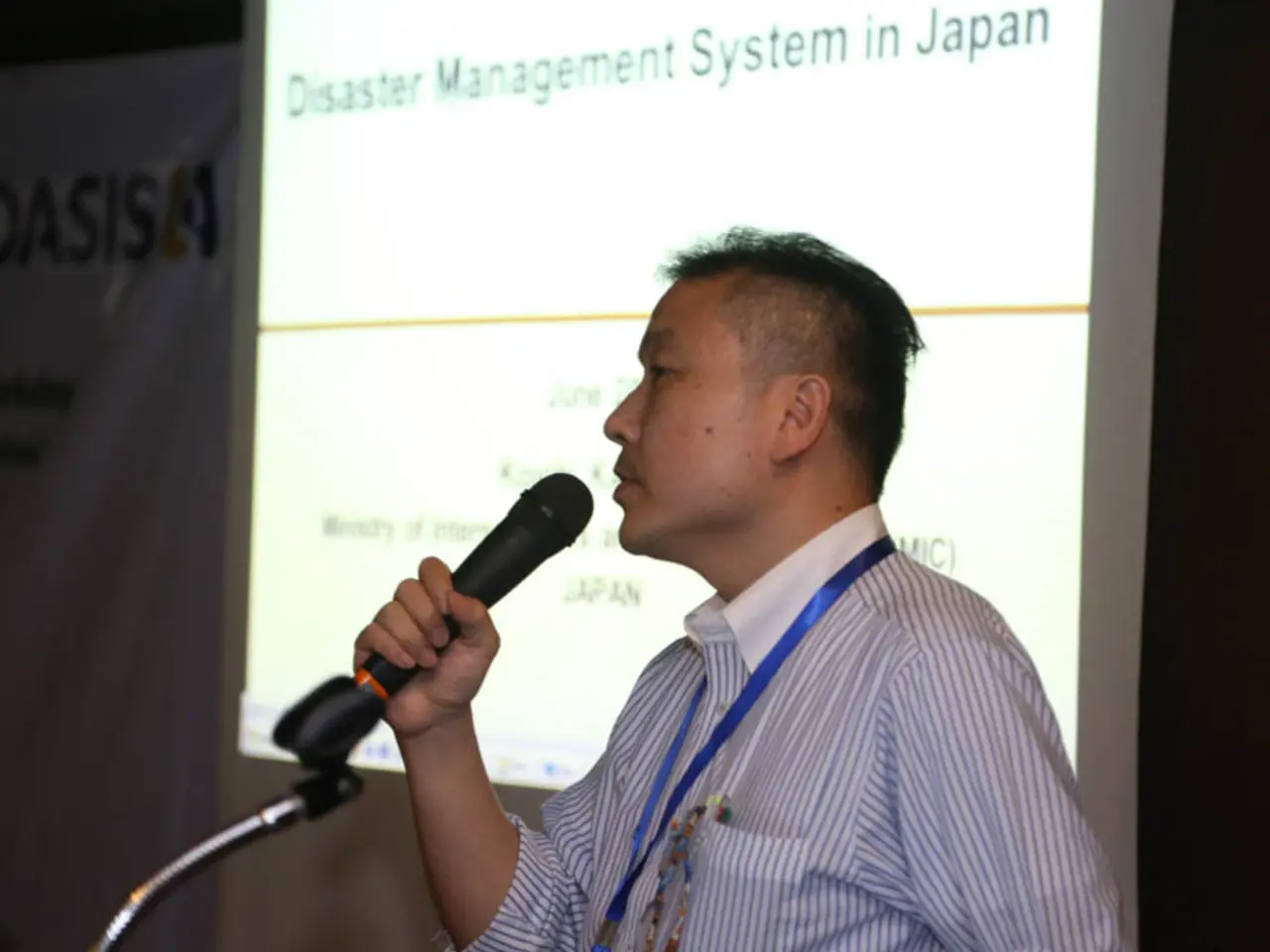Japan reportedly maintains its stance to not acknowledge a Palestinian state, allegedly due to its close relations with the United States.
In a significant development, Japan has decided not to recognize a Palestinian state at this time. This decision, reported by the Asahi newspaper on Wednesday, was obtained from unidentified government sources.
The report suggests that Japan's decision was influenced by a combination of factors, including its relationship with the United States and Israel's attitude towards the ongoing conflict.
The United States is said to have urged Japan not to recognize a Palestinian state through several diplomatic channels. This pressure comes amidst reports that Britain, France, Canada, and Australia have announced their intention to recognize a Palestinian state at the UN General Assembly this month.
Within the Group of Seven nations, German and Italian officials have called an immediate recognition of Palestine 'counterproductive.'
Japan's Foreign Minister, Takeshi Iwaya, stated that Japan is assessing appropriate timing and modalities for recognizing Palestinian statehood. However, Chief Cabinet Secretary Yoshimasa Hayashi expressed a grave sense of crisis over the Israeli ground assault on Gaza City. He urged Israel to end the severe humanitarian crisis in Gaza City, including famine, as soon as possible.
The decision to delay recognition of a Palestinian state appears to be a strategic move to maintain relations with the United States and avoid hardening of Israel's attitude, although the exact nature of this hardening is not specified in the report.
Prime Minister Shigeru Ishiba, who provisionally rejects the recognition of a Palestinian state, is reportedly planning to skip a September 22 meeting on the subject during the UN gathering in New York.
This decision by Japan comes after it voted in favor of a declaration outlining steps toward a two-state solution between Israel and the Palestinians at a UN meeting. The international community continues to watch Japan's stance closely as the situation in the Middle East unfolds.
Read also:
- United States tariffs pose a threat to India, necessitating the recruitment of adept negotiators or strategists, similar to those who had influenced Trump's decisions.
- Weekly happenings in the German Federal Parliament (Bundestag)
- Southwest region's most popular posts, accompanied by an inquiry:
- Discussion between Putin and Trump in Alaska could potentially overshadow Ukraine's concerns








